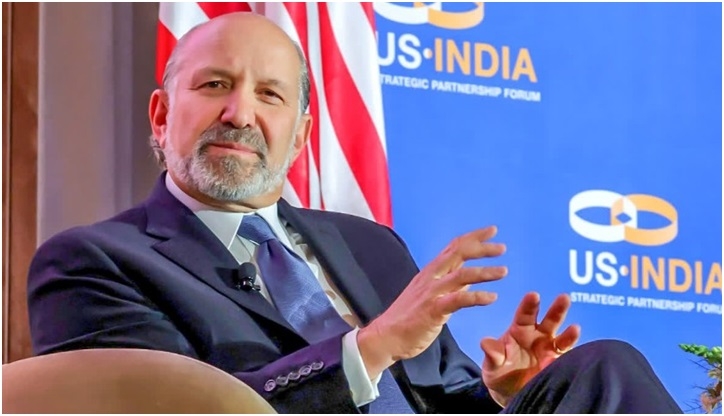US Commerce Secy Signals 'Significant' Number Of H1B Visa Changes Before 2026
Total Views |

Washington: US Commerce Secretary Howard Lutnick said
there will be “a significant number of changes” in the H1B visa process before
February 2026, when the new fee of USD 100,000 goes into effect, as he
described as “just wrong” the idea of “inexpensive” tech consultants coming
into the country and bringing their families.
The Trump administration this month announced a one-time
fee of USD 100,000 for new H1B work visas, an order that will impact Indian
professionals looking to work in the US on the temporary visas.
Standing behind US President Donald Trump in the Oval
Office when the H1B proclamation was signed, Lutnick had then said that the USD
100,000 will be an annual fee for all H1B visas, including renewals and
first-time applicants.
Amid widespread panic and chaos, the Trump
administration clarified that the new fee requirement for H1B visas will not
apply to current visa holders and is a one-time payment applicable only to new
petitions.
“This procedure and process goes into effect in February
of 2026, so my guess is going to be, there are going to be a significant number
of changes between now and 2026,” Lutnick said Sunday in an interview with
NewsNation.
Lutnick said that with the USD 100,000 fee on
applications, "at least it shouldn't be overrun with these people. But I
think you're going to see a real thoughtful change going forward. And that's
what I expect will happen."
"There's going to be a variety of changes; they're
talking about changes - how to get the lottery, should it still be a lottery?
But that will all be resolved by February,” he said. He said that “but as of
right now”, there's going to be a one-time fee of USD 100,000 to get in.
“There was a lottery.
The H1B is a lottery,” he said,
adding that in his recent conversation with heads of two of the biggest tech
companies in the world, “they said doing a lottery for skilled workers coming
into America is 'bizarre'.” Lutnick questioned why a nation should bring in
skilled workers through a lottery. “That just doesn't make any sense.”
He said there is consensus that the H1B process, which
was set up in 1990 and “sort of butchered along the way”, needs to change. He
said the visas are 7-10 times “oversubscribed”, 74 per cent of it is tech
consulting.
“H1B visas are for tech consultants? Like, somehow,
that's like important that tech consultants are onshore versus offshore.
They're all in other countries anyway,” he said, adding that about four per
cent of the visas were for educators and doctors. He added that the H1B lottery
needs to be “fixed" and the US should only give "highly-skilled
jobs" to the "most highly-skilled people".
Lutnick said doctors and educators with high degrees
should be able to come in, but if companies want to hire engineers, they should
employ only the highly paid ones.
“The idea of having tech consultants and trainees who
are inexpensive should be eliminated. I have a strong opinion that way. I think
the President's right with me on those same topics...I am completely on the
view that this idea that inexpensive tech consultants should be coming into
this country and bringing their families, I find it just wrong, and so it sits
wrong with me,” Lutnick said.
This month, the US Department of Labour announced the
launch of ‘Project Firewall’, an H1B enforcement initiative aimed at
safeguarding the rights, wages, and job opportunities of highly skilled
American workers. The initiative will ensure that employers prioritise
qualified Americans when hiring workers and will hold employers accountable if
they abuse the H1B visa process.
“Launching Project Firewall will help us ensure no
employers are abusing H1B visas at the expense of our workforce,” US Secretary
of Labour Lori Chavez-DeRemer had said in a statement. “By rooting out fraud
and abuse, the Department of Labour and our federal partners will ensure that
highly skilled jobs go to Americans first.”
Through Project Firewall, the department will conduct
investigations of employers to maximise H1B programme compliance. To achieve
this goal, the Secretary of Labour will “personally certify the initiation of
investigations” for the first time in the department’s history.
Violations may result in the collection of back wages
owed to affected workers, the assessment of civil money penalties, and/or
debarment from future use of the H1B programme for a prescribed period of time.

